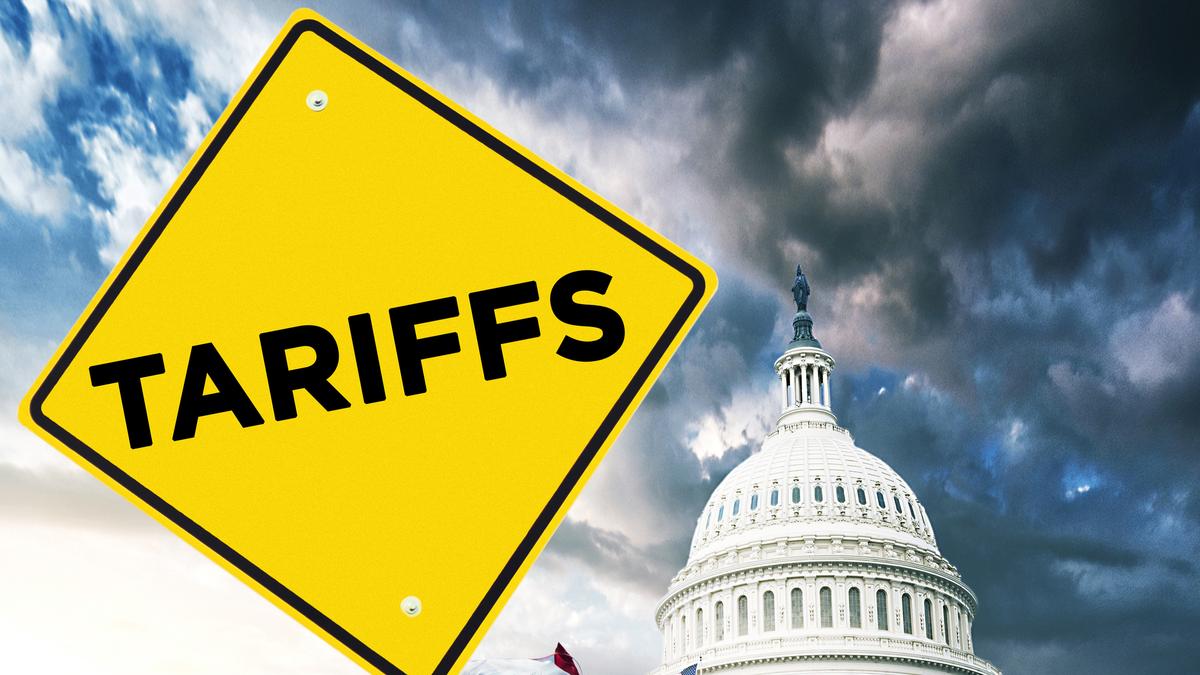‘Some countries have chosen to maintain silence regarding the U.S.’s illegal actions, issuing insipid statements that they are carefully examining the U.S.’s decision’
| Photo Credit: Getty Images
The world is shaken by the reckless decision of the United States to impose reciprocal tariffs, which were announced on April 2, 2025, though it has been paused for 90 days, barring the tariff rates on China. The illegality of these tariffs under international trade law, as defined by the World Trade Organization (WTO), makes little difference to U.S. President Donald Trump, who treats international norms with derision. Since the announcement of the tariffs, countries have responded in various ways, with some openly criticising the U.S. while others have chosen to remain silent.
Criticising the U.S.
Several nations have condemned the U.S. for imposing illegal tariffs and undermining the fundamental principles of international trade. Singapore’s Prime Minister Lawrence Wong remarked recently that the imposition of reciprocal tariffs “is a complete repudiation of the MFN principle”, which is a cornerstone of the multilateral trading system. Similarly, Brazil stated that these tariffs “violate” the U.S.’s commitments under WTO rules. Another BRICS nation, China, has openly criticised the U.S. for breaching its WTO obligations and has initiated a dispute within the WTO. In addition, China has imposed retaliatory tariffs on U.S. imports. Japan has also formally stated that the unilateral imposition of tariff rates contradicts WTO agreements. Canada, too, has not hesitated to challenge the legality of the U.S. actions. It has imposed retaliatory tariffs and filed a legal claim at the WTO regarding U.S. tariffs on Canadian automobiles and automobile parts. The positions adopted by these countries are justified; international trade is complex and cannot operate effectively without fundamental rules. If a powerful country disregards these rules, other nations that uphold the rule-based system must call out that country.
While some nations have refrained from explicitly condemning the U.S. for violating international law, they have expressed general dissatisfaction with the unjustifiable increase in tariff rates. For instance, Fiji referred to the tariff hikes as ‘unfair’, and Italy’s Prime Minister described them as a ‘mistake’.
However, some countries have chosen to maintain silence regarding the U.S.’s illegal actions, issuing insipid statements that they are carefully examining the U.S.’s decision. These countries neither criticise the U.S.’s blatantly illegal actions nor formally express their discontent. India falls into this category.
Reasons behind India’s silence
There are primarily two reasons presented to justify India’s silence on the U.S. tariffs. First, India is negotiating a bilateral trade agreement (BTA) with the U.S., and it is deemed not in India’s interest to criticise the U.S. for its illegal actions publicly. This reasoning is questionable. The U.S. is also negotiating with India but has not hesitated to express its dissatisfaction with India’s high tariff rates publicly, even when they are legal. Mr. Trump has openly criticised India’s tariff levels on several occasions. Yet, it did not prevent the U.S. from negotiating with India even prior to the announcement of the reciprocal tariffs. Moreover, India is not the only country negotiating bilaterally with the U.S.; many nations are in similar situations, and yet have publicly called out the U.S. for its unilateral actions. Claiming that the U.S.’s actions violate WTO law should not hinder negotiations, as New Delhi is not confronting Washington by imposing retaliatory tariffs but reminding it to honour international trade rules. Presumably, India will privately communicate this to the U.S., but a public statement would show its commitment to a rule-based trading order.
The second reason is that the WTO’s dispute settlement body is currently dysfunctional. Therefore, calling out the U.S. for its illegal actions, such as by filing a legal claim at the WTO, is useless. This transactional perspective is flawed because it limits the role of international law to material outcomes such as compliance and enforcement. We must move beyond this narrow view. A key function of any legal system is its ability to differentiate between sheer public power and legitimate authority. Even though international law may not always and immediately punish decision-makers for non-compliance, it enables other actors to question those in power and to argue that their actions are illegitimate. Both China and Canada are well aware of the dysfunction of the WTO’s dispute settlement mechanism. However, this has not deterred them from filing legal claims against the U.S.; they understand that they can use international law to strengthen their case for legitimacy.
Respect for trade rules
Recently, around 40 WTO member countries, including many developing nations, issued a statement supporting trade multilateralism and WTO rules in response to U.S.-imposed tariffs. Notably, India, which often champions a rule-based trading system, did not sign this statement. In accordance with its professed vision, this is a crucial moment for India to lead the Global South by advocating trade multilateralism and building a coalition against unilateral actions. History should remember India as a nation that defended national interests while taking up the cudgels for the developing world to establish a fair and just trading order.
Prabhash Ranjan is Professor and Vice Dean (Research), Jindal Global Law School. The views expressed are personal
Published – April 21, 2025 12:08 am IST
